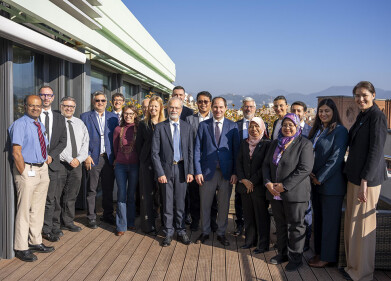Air clean up
Should We Be More Concerned About Cruise Ships?
Feb 15 2017
Whether it’s an arctic expedition or a tropical tour, cruising is becoming more and more popular. There was a 12 percent increase in passengers cruising from the UK in 2015, with a total of 840,000 setting sail from British ports – and it’s expected to creep towards 2 million in 2017. But what does this mean for the environment?
Dirty fuel, dirty air
While we focus on cars and industry as pollution contributors – with the Directive on Industrial Emissions, for instance – ships continue to burn away some of the dirtiest diesel out there. German environment association NABU suggests that it would take five million cars to pollute as much as one mid-sized ship over the same distance.
Why are they so bad? It’s partly down to shipping fuel being relatively unregulated. In 2020, new legislation will prevent fuel containing more than 0.5 percent sulphur dioxide, but before then it could be as high as 3.5 percent. As well as sulphur dioxide, ships contribute significantly to the amount of nitrogen dioxide and carbon dioxide in the air.
The case for Southampton
Southampton is the UK’s biggest cruise port and, as a result, there are always ships coming in and out of the city. Not only are these ships pumping out pollutants at sea, they are leaving their engines on in the dock. Southampton has suffered considerably from the resulting air pollution, with levels exceeding international guidelines.
But it isn’t just the direct pollution. Because it is the biggest, and one of the busiest ports in the UK, Southampton has to deal with extra traffic coming in and out of the city. It’s good for their economy, but is there a way to get the best of both worlds?
"A tightrope to be walked"
“There is clearly a tightrope to be walked between quality of life for people and jobs and benefits to a city,” says Dr Matt Loxham, air pollution scientist at Southampton University. “We pay a lot more attention to cars – probably rightly. But it means we know a lot more about what comes out of a car than what comes out of a ship. Unlike with car diesel, we don’t really understand the health implications from the pollutants and particle types”
Indeed, for diesel cars, we are far more aware of the impact and firmer with regulations as a result. Car diesel regulations are continually being updated. The latest Euro 6 limits permit just 80mg/km of nitrogen oxide. To bring shipping down to the same levels, the regulations need to change. With more awareness being raised of the extent of shipping pollution, it might only be a matter of time before governments crack down on dirty cruise ship fuel.
Events
Carrefour des Gestions Locales de L'eau
Jan 22 2025 Rennes, France
Jan 29 2025 Tokyo, Japan
Feb 05 2025 Nantes, France
Feb 16 2025 Kampala, Uganda
Feb 26 2025 Chennai, India










